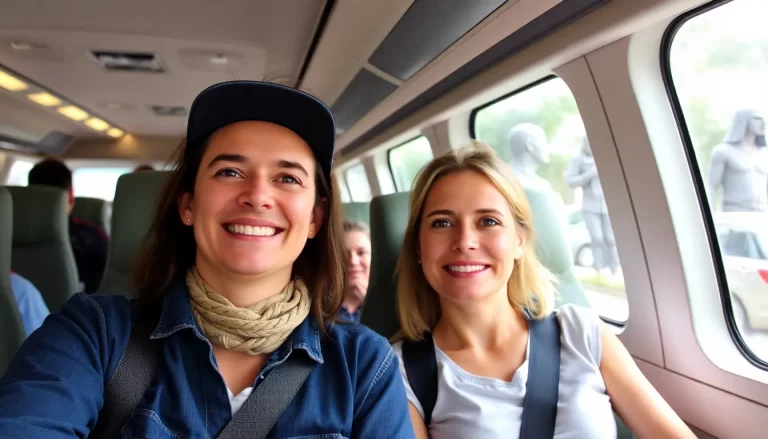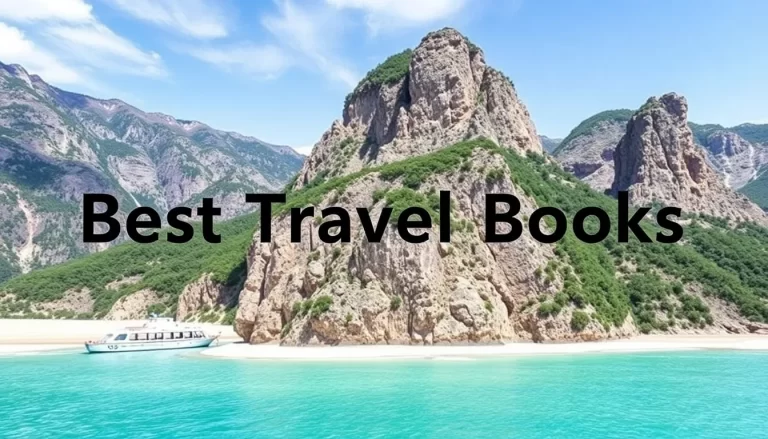In the world of travel writing, few voices are as compelling and candid as that of Chuck Thompson. His book, Smile When You’re Lying, challenges the glorified narratives often presented in the travel industry, revealing an uncomfortable but necessary truth. As travelers, we deserve to understand not just the allure of new destinations, but the realities that often lie beneath the surface.
Recently, I had the opportunity to delve deeper into Thompson’s insights on the travel industry, discussing the hidden challenges, ethical dilemmas, and the evolving landscape of travel writing. His experiences and observations provide a refreshing perspective for anyone interested in the nuances of travel journalism.
Understanding the Travel Industry’s Complex Landscape
The travel industry is often romanticized, yet it harbors numerous complexities that can overshadow the joys of exploration. Thompson’s candid critique reveals how press trips, sponsored content, and advertising pressures can compromise the authenticity of travel writing.
Many travel writers, despite their passion for the craft, find themselves navigating a tricky terrain laden with ethical dilemmas. For instance, sponsored trips can lead to biased narratives that prioritize the interests of advertisers over genuine experiences. This creates a cycle where the truth can often be obscured by shiny brochures and curated itineraries.
- Press trips often prioritize luxury experiences over authentic interactions.
- Writers may feel compelled to gloss over negatives to maintain relationships with advertisers.
- There is a growing trend of advertorial content that blurs the line between journalism and advertising.
The Enjoyment of Travel vs. Industry Realities
Despite his criticisms, Thompson expresses a genuine love for travel. His ability to appreciate the experiences he encounters—even amidst industry challenges—demonstrates a nuanced understanding of the profession. He recently returned from a month in India, highlighting how travel can be an enriching experience, even when the business side is fraught with difficulties.
Thompson’s approach to travel writing encompasses a broader definition of “writer.” He emphasizes that travel writing is just one facet of his career, which also includes various other writing projects. This versatility not only enhances his skill set but also provides him with a safety net in an unpredictable industry.
Financial Insecurity and Its Implications for Writers
One of the stark realities of being a travel writer is the lack of financial security. Many writers struggle with low pay and inconsistent work, making it challenging to sustain a living. The industry often mirrors a broader trend where creatives are expected to produce more for less.
Writers face pressures from publishers who demand high-quality content while offering stagnant compensation rates. This situation results in a challenging environment where many writers consider alternative career paths, seeking greater stability and fulfillment.
Thompson’s perspective highlights important considerations for aspiring travel writers, including the need to:
- Develop a diverse portfolio to increase job opportunities.
- Be prepared for the realities of freelance life, including inconsistent income.
- Understand the importance of networking and building relationships in the industry.
The Evolution of Travel Writing: Online vs. Print
With the rise of digital media, the landscape of travel writing is shifting. Online publications offer a platform for diverse voices and perspectives, often focusing on independent travel experiences that mainstream outlets overlook. However, Thompson believes that the print medium retains its value, offering a tactile experience that many readers still cherish.
The challenge lies in the fact that many online publications also rely heavily on advertising revenue, which can influence the type of content produced. This reliance on advertisers can lead to a similar set of issues found in print media, where honesty may be sacrificed for financial gain.
In this context, independent travel blogs and online magazines have emerged as vital alternatives, providing authentic narratives and unique perspectives. The future of travel writing may very well hinge on the ability to strike a balance between digital accessibility and maintaining integrity in storytelling.
Ethics and Integrity in Travel Writing
One of the most pressing questions in the travel writing community is about the integrity of content. Many writers cut corners, relying on internet research instead of firsthand experiences. This practice raises concerns about the authenticity of the narratives presented to readers, as well as the credibility of the writers themselves.
Thompson argues that while some may take shortcuts, the majority of writers strive to deliver quality content. The challenge lies in finding a sustainable way to do so while adhering to ethical standards. This includes ensuring that experiences are accurately represented and that readers are not misled by embellished or sponsored narratives.
Advice for Aspiring Travel Writers
For those drawn to the idea of travel writing, Thompson offers practical advice rooted in realism. He emphasizes the importance of honing general writing skills over specializing solely in travel writing. This approach allows writers to explore various topics while still incorporating their travel experiences.
Moreover, Thompson encourages aspiring writers to embrace the process of rewriting and refining their work. He believes that great writing emerges from diligent editing, where multiple drafts can lead to a polished final product. This commitment to quality can significantly enhance a writer’s credibility and marketability.
Conclusion: The Future of Travel Writing
The travel writing industry stands at a crossroads, influenced by shifting economic landscapes and evolving consumer preferences. Thompson’s insights challenge aspiring writers to navigate their paths with integrity, creativity, and adaptability. By understanding the complexities of the industry, they can carve out niches that prioritize authenticity and genuine storytelling.
As travel enthusiasts, we owe it to ourselves to seek out voices that challenge the status quo and offer honest perspectives on our shared wanderlust. Through awareness and critical engagement, we can foster a travel culture that celebrates not just the destinations we visit, but the stories we tell along the way.







